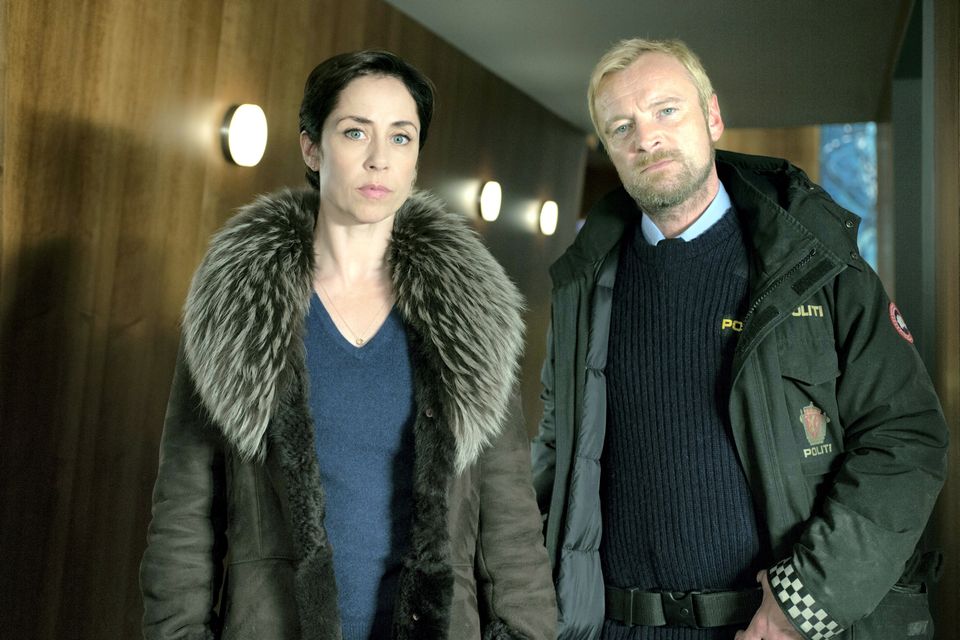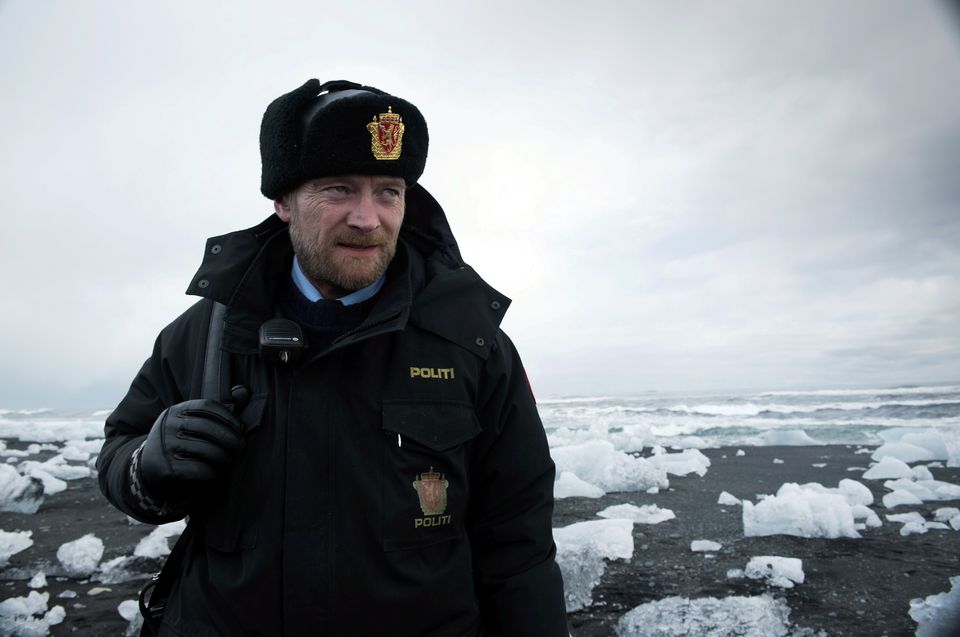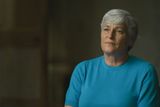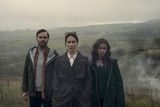New Sky Atlantic drama Fortitude: The Arctic Circle of life and death
The pole has always exerted a real pull on us and for Fortitude writer Simon Donald it is no different, writes Gerard Gilbert
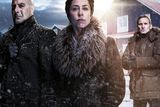

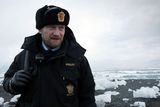
When writer Simon Donald was a teenager in early 1980s Scotland, he used tell people that when he grew up he hoped to join the British Antarctic Survey team.
He wasn't sure where this ambition came from but, he says: "There was something about the extremes, the purity and the starkness. Everything is crystal, clear and defined… unlike adolescence."
The poles answer many calls, it seems, including the confused yelps of pre-adulthood.
It was ever thus. The 'Frozen North' was once a pristine adventure playground for the curious and the greedy and - as a Norwegian ship's captain in Michelle Paver's polar ghost story Dark Matter puts it - "where you can breathe with both lungs". But it's also a metaphor, a state of mind, an otherness and a damned good setting for a story. The last great wilderness, you might call it if you didn't fear sounding like a cliched script for a nature documentary.
Sofie Grabol as Hildur Odegard; Richard Dormer as Dan Anderssen
In our increasingly over-heated planet it seems that we are increasingly attracted to the cold.
Certainly television drama has been steadily heading in that direction. Now, with Simon Donald's 12-part Sky Atlantic thriller Fortitude, the new box-set age of prestige television drama has at last unambiguously breached the Arctic Circle. Despite actually being filmed in Iceland, which is sub-Arctic, Fortitude is set further north, in the Norwegian archipelago of Svalbard.
Donald tells me that he first settled on an Arctic setting because what his story needed was permafrost. Fair enough - and it beats, say, the freezer storage unit in an abattoir. When Sky Atlantic came into the picture, he also required a mainly British cast, and so Michael Gambon, Jessica Raine and Christopher Eccleston - as well as the American Stanley Tucci and the Danish star of The Killing, Sofie Grabol - are to be found in his fictional Svalbard town.
Donald had originally intended to write a horror film - his primary influences being John Carpenter's 1982 movie The Thing, in which a parasitical alien lifeform emerged from the ice, and Dan Simmons's novel The Terror, in which the American horror writer speculated on the fate of Captain Franklin's ill-fated 1840s expedition to find the Northwest Passage.
Richard Dormer as Dan Anderssen
supernatural
In Simmons's 2007 novel, the survivors are stalked by a supernatural creature, and the author won't have been the first to connect the Arctic with monsters - in fact the link has an impeccable provenance in Mary Shelley's Frankenstein, with its first and last scenes set on the polar ice cap.
"I try in vain to be persuaded that the pole is the seat of frost and desolation," says Robert Walton, the narrator of Shelley's Gothic novel. "It ever presents itself to my imagination as the region of beauty and delight. The sun is forever visible… there the snow and frost are banished."
Fat chance of that, but then Shelley, as late as the 19th-century, was merely reflecting an idyllic vision of the Arctic handed down by the Ancient Greeks, with their mythical Hyperborea, where the north wind (the "borea") came from. Counter-intuitively, the Greeks believed that at the very top of the world sat a tropical paradise set in balmy seas. Talk about packing the wrong clothes.
The polar ice cap of course is nothing but frozen sea - shrinking and expanding according to the seasons - and a scientific impossibility according to those kings and queens who funded expeditions to find a northern sea passage to China and India. The Elizabethan privateer Martin Frobisher was among the first of these entrepreneurs, and Frobisher's insistence that the tusked narwhals he encountered were a species of unicorn must have seemed entirely plausible to the 16th-century mind.
Other tales spoke of pygmies, dragons, epic whirlpools and of a mysterious black rock that stood at the North Pole itself. Believers in a hollow earth - who thought there was another world beneath this one's surface - held the entrance to this nether world would be found in the Arctic. But those hardy realists, the whalers, reignited interest in the Northwest Passage when they reported that the ice cap was melting. It may be a case of the literary imagination pre-empting events that the year of Frankenstein's publication, 1818, also saw the first serious British polar expedition in more than 100 years, as Sir John Ross undertook the first of three trips around the Canadian Arctic islands - the final 1850 voyage being undertaken to look for his naval colleague, John Franklin, whose mysterious fate gripped the world for the next decade.
Jack London was the most celebrated Victorian-Edwardian chronicler of the hardships of life in the Arctic, with his two classics set amid the Klondike Gold Rush in the Yukon - Call of the Wild and White Fang. A more contemporary account of the difficulties - physical and psychological - posed by early Arctic exploration are offered in the aforementioned Dark Matter, Michelle Paver's 2010 ghost story that follows a 1930s expedition into the heart of darkness of a polar winter.
mystics
At the end of the Second World War, one of the more outre theories concerning renegade Nazis was that they had holed up in the Arctic - home of their Aryan descendants according to the mystics of the Thule Society, who believed that blond-haired, blue-eyed Europeans did not emerge out of Africa, but from a long-vanished race of northern supermen (Himmler was, needless to say, a keen supporter of this theory).
When the flying-saucer phenomenon first emerged in the late 1940s, one particularly imaginative magazine editor hypothesised that they were the experimental warplanes of these fugitive Nazis.
The frosty tentacles of the Cold War eventually embraced the polar north, too. It was a strange irony of the clash of the two mid-20th century superpowers that while they fought their proxy wars in Africa and South-east Asia, their own landmasses abutted in the Arctic, a short 50-mile hop across the Bering Strait between Siberia and Alaska. The maps in Dr Strangelove that trace the progress of the intercontinental nuclear warplanes brought home the proximity.
A year before Stanley Kubrick's classic satire, Alistair Maclean's adventure novel Ice Station Zebra (filmed in 1968 with Rock Hudson) exploited the public's fascination with nuclear submarines and their ability to sail underneath the Arctic ice.
Maclean returned to an Arctic setting with his 1971 murder mystery Bear Island - whose plot was substantially altered in the 1978 film of the same name (starring Donald Sutherland and Vanessa Redgrave), to include one of the earliest storylines involving climate change. What unites all these stories is their sense of the Arctic as a hostile and empty wasteland, visited only by a handful of intrepid European and American explorers.
Meanwhile, intercontinental airliners hourly criss-cross the continent, mining companies sniff out oil and gas, satellites map every inch and even middle-income tourists can watch the Northern Lights or take their children to pester Santa Claus.
But, as American archaeologist Robert McGhee puts it in his 2007 book The Last Imaginary Place: A Human History of the Arctic World: "The legend of the Arctic as a distant paradise has been with us since the time of Homer, and a myth of such antiquity will not fade away merely because of the ephemeral reports of a few Arctic explorers, or the scanning eyes of satellites."
Fortitude begins on Sky Atlantic tonight at 9pm.
Herald
Join the Irish Independent WhatsApp channel
Stay up to date with all the latest news



